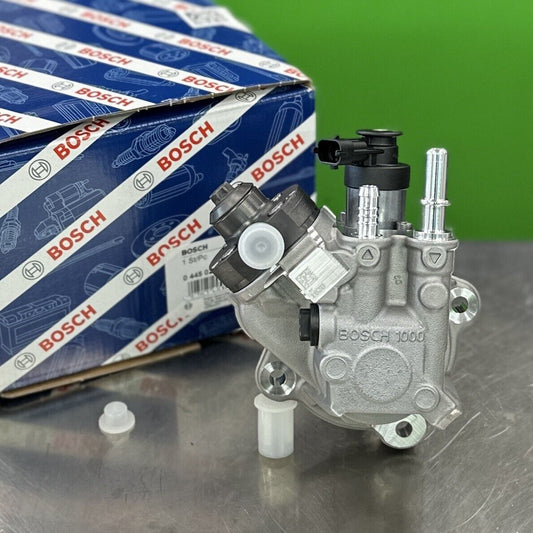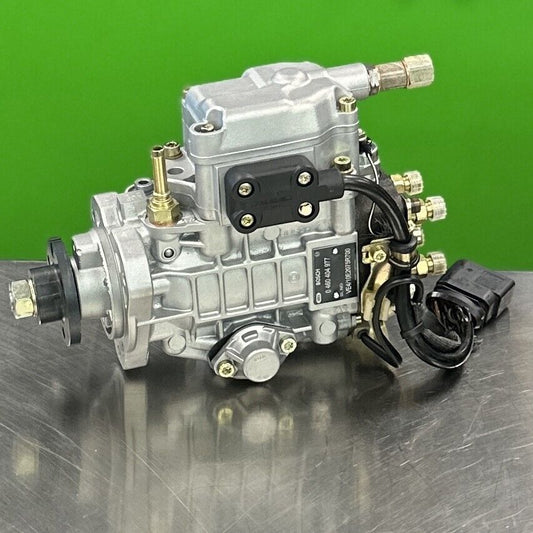How to Choose the Right Diesel Additives for Your Climate
Choosing the right diesel additives for your climate is essential to ensure your engine operates at its best. Factors like temperature, humidity, and altitude can significantly impact the performance of your diesel engine. Understanding how these elements affect your vehicle can help you select the most suitable additives for your specific needs.
When it comes to temperature, different additives are formulated to address specific climate conditions. For cold climates, additives that prevent fuel gelling are crucial to keep your engine running smoothly. On the other hand, in hot climates, additives that enhance combustion efficiency can improve overall performance. By considering the temperature variations in your region, you can select additives that optimize your engine's operation.
Humidity and moisture levels also play a vital role in determining the right diesel additives for your climate. In areas with high humidity, diesel fuel is more prone to microbial contamination and water accumulation, leading to fuel degradation. Choosing additives with moisture control properties can help prevent these issues and maintain the quality of your fuel.
Moreover, altitude effects should not be overlooked when selecting diesel additives. Engines operating at high altitudes may experience reduced power and efficiency due to lower oxygen levels. Opting for additives that improve combustion and ensure consistent engine performance at different altitudes can help mitigate these challenges and keep your engine running smoothly.
Understanding Diesel Additives
Diesel additives are crucial components that are mixed with fuel to enhance various aspects of engine performance. These chemical compounds play a vital role in improving fuel efficiency, maintaining cleanliness, and ensuring optimal engine operation. Understanding the types and functions of diesel additives is essential for selecting the right ones tailored to your specific climate and driving conditions.
When it comes to choosing diesel additives, it's important to consider a range of factors that can impact their effectiveness. Factors such as temperature variations, humidity levels, and altitude can significantly influence the performance of additives in different climates. By taking these factors into account, you can ensure that the diesel additives you choose are best suited to your environment.
Temperature plays a critical role in determining the effectiveness of diesel additives. Additives designed for cold climates are formulated to prevent fuel gelling, which can impede engine performance in low temperatures. On the other hand, additives tailored for hot climates focus on improving combustion efficiency to enhance engine operation in high-temperature conditions. Selecting the right additives that address temperature variations in your region is key to ensuring optimal engine performance throughout the year.
Humidity and moisture levels in the environment can also impact the quality of diesel fuel. In humid climates, diesel fuel is more prone to microbial contamination and water accumulation, which can lead to fuel degradation and engine issues. Choosing additives with moisture control properties can help prevent these issues and ensure the fuel remains clean and efficient in such environments.
Altitude is another factor that can affect diesel engine performance. At high altitudes, engines may experience reduced power and efficiency due to lower oxygen levels. Opting for additives that enhance combustion and maintain engine performance at different altitudes can help overcome these challenges and ensure consistent operation regardless of elevation.
Factors to Consider
When selecting the right diesel additives for your climate, it is crucial to consider various factors that can impact their effectiveness. One significant aspect to keep in mind is the temperature range of your location. Diesel additives tailored for cold climates are designed to prevent fuel gelling, ensuring smooth engine operation even in freezing conditions. On the other hand, additives formulated for hot climates focus on improving combustion efficiency, maximizing engine performance in warmer environments.
Another essential factor to consider is the humidity and moisture levels in your region. In humid climates, diesel fuel is susceptible to microbial contamination and water accumulation, leading to fuel degradation and engine issues. Opting for additives with moisture control properties can help prevent these problems, maintaining fuel quality and engine health in moisture-prone areas.
Additionally, the altitude of your location can also influence the performance of diesel engines. At higher altitudes, engines may experience reduced power and efficiency due to lower oxygen levels. Choosing additives that enhance combustion and support engine performance at different altitudes is crucial for ensuring consistent operation and optimal engine function regardless of elevation.
Temperature Variations
When it comes to temperature variations, selecting the right diesel additives is crucial for ensuring your engine operates smoothly in all conditions. In colder climates, diesel fuel can gel, causing blockages and hindering engine performance. To combat this issue, additives with anti-gelling properties are essential. These additives lower the fuel's freezing point, preventing it from solidifying in low temperatures. On the other hand, in hotter climates, combustion efficiency is key to optimal engine function. Additives designed for hot climates work to improve combustion, ensuring a more efficient burn of the fuel, which leads to better engine performance overall.
By understanding the temperature range of your location and the specific needs of your engine, you can choose the right diesel additives to address these variations effectively. It's like equipping your car with the appropriate tires for different road conditions; the right additives act as the perfect complement to ensure your engine runs smoothly regardless of the temperature outside. Just as you wouldn't use winter tires in the summer, selecting the correct additives based on temperature variations is essential for your engine's health and longevity.
Humidity and Moisture Levels
Humidity and moisture levels are critical factors to consider when selecting diesel additives for your engine. In regions with high humidity, diesel fuel is highly susceptible to microbial contamination and water accumulation, leading to fuel degradation and engine issues. Therefore, it is essential to choose additives with moisture control properties to combat these challenges effectively.
Imagine your engine as a delicate ecosystem, constantly battling against the elements. Just like how a well-equipped fortress can withstand enemy attacks, the right diesel additives act as protective shields for your engine, safeguarding it from the harmful effects of moisture and humidity.
By incorporating additives with moisture control capabilities, you create a barrier that shields your engine from the detrimental impact of water and microbial growth. This proactive approach not only ensures the longevity of your engine but also maintains its efficiency and performance over time.
Think of these additives as the superheroes of your engine, swooping in to save the day when moisture threatens to wreak havoc. They work tirelessly behind the scenes, combating moisture-related issues and preserving the integrity of your fuel, ensuring smooth operations and optimal performance.
So, when faced with high humidity levels and moisture challenges, don't leave your engine vulnerable to the elements. Choose diesel additives specifically formulated to tackle these issues head-on, providing your engine with the protection it needs to thrive in any environment.
Altitude Effects
When it comes to the effects of altitude on diesel engines, it's crucial to understand how performance can be impacted as you climb higher. At higher altitudes, the air becomes thinner, affecting the combustion process in diesel engines. The reduced oxygen levels can lead to decreased power output and efficiency, affecting the overall performance of the engine. To counter these altitude effects, selecting the right diesel additives is essential to maintain optimal engine operation.
One key consideration when choosing additives for altitude effects is their ability to enhance combustion efficiency in low-oxygen environments. Additives that improve combustion under such conditions can help compensate for the reduced oxygen levels at higher altitudes, ensuring that the engine operates smoothly and efficiently regardless of elevation.
Additionally, altitude effects can also impact the overall cleanliness and maintenance of the engine. Diesel additives that contain detergents and cleaners can help prevent carbon buildup and deposits that may occur more rapidly at higher altitudes. By keeping the engine components clean and free from residue, these additives contribute to prolonged engine life and performance stability.
Moreover, at higher altitudes, the temperature variations can be significant, especially in mountainous regions. Diesel additives that offer protection against fuel gelling in cold temperatures and improve lubricity in extreme conditions can safeguard the engine from potential damage due to temperature fluctuations. Ensuring that the additives can function effectively across a wide range of temperatures is crucial for consistent engine performance at varying altitudes.
Frequently Asked Questions
-
What are diesel additives and why are they important?
Diesel additives are chemical compounds added to fuel to improve performance, cleanliness, and efficiency. They are crucial for maintaining optimal engine operation and longevity by addressing specific needs based on climate and environmental conditions.
-
How do I choose the right diesel additives for my climate?
When selecting diesel additives, consider factors such as temperature variations, humidity levels, and altitude effects in your region. Choose additives that cater to the specific conditions of your climate to ensure maximum effectiveness and engine performance.
-
What role do temperature variations play in selecting diesel additives?
Temperature variations impact engine performance differently, requiring additives that prevent fuel gelling in cold climates and enhance combustion efficiency in hot climates. Select additives designed to address temperature fluctuations in your area for optimal engine function.
-
How do diesel additives help in humid climates?
In humid climates, diesel fuel is susceptible to moisture and microbial contamination. Diesel additives with moisture control properties help prevent fuel degradation and microbial growth, ensuring the fuel quality and engine performance are maintained in such environments.
-
Why is it important to consider altitude effects when choosing diesel additives?
At high altitudes, diesel engines may experience reduced power and efficiency. Opting for additives that enhance combustion and maintain engine performance at different altitudes is essential to ensure consistent operation and prevent performance issues due to altitude effects.



